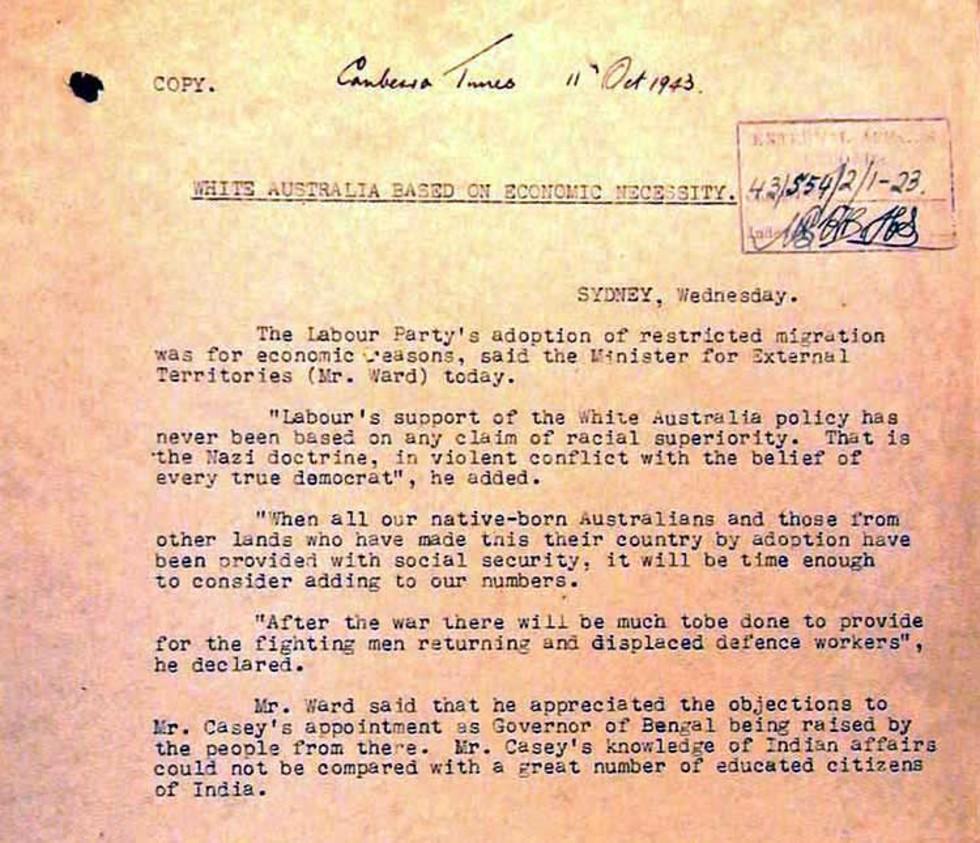
Transcript of a newspaper article as published in the The Canberra Times, 11 October 1943.
Aboriginal and Torres Strait Islander people should be aware that the National Archives' website and collection contain the names, images and voices of people who have died.
Some records include terms and views that are not appropriate today. They reflect the period in which they were created and are not the views of the National Archives.


Transcript of a newspaper article as published in the The Canberra Times, 11 October 1943.
COPY.
[Handwritten annotation:] Canberra Times 11th Oct 1943.
[Stamped: ‘EXTERNAL AFFAIRS’ with handwritten reference number ‘43/534/2/1-23’ and illegible handwritten signature.]
[Underlined heading:] WHITE AUSTRALIA BASED ON ECONOMIC NECESSITY.
SYDNEY, Wednesday.
The Labour Party’s adoption of restricted migration was for economic reasons, said the Minister for External Territories (Mr. Ward) today.
“Labour’s support of the White Australia policy has never been based on any claim of racial superiority. That is the Nazi doctrine, in violent conflict with the belief of every true democrat”, he added.
“When all our native-born Australians and those from other lands who have made this their country by adoption have been provided with social security, it will be time enough to consider adding to our numbers.
“After the war there will be much to be done to provide for the fighting men returning and displaced defence workers”, he declared.
Mr. Ward said that he appreciated the objections to Mr. Casey’s appointment as Governor of Bengal being raised by the people from there. Mr. Casey’s knowledge of Indian affairs could not be compared with a great number of educated citizens of India.
Learn how to interpret primary sources, use our collection and more.
